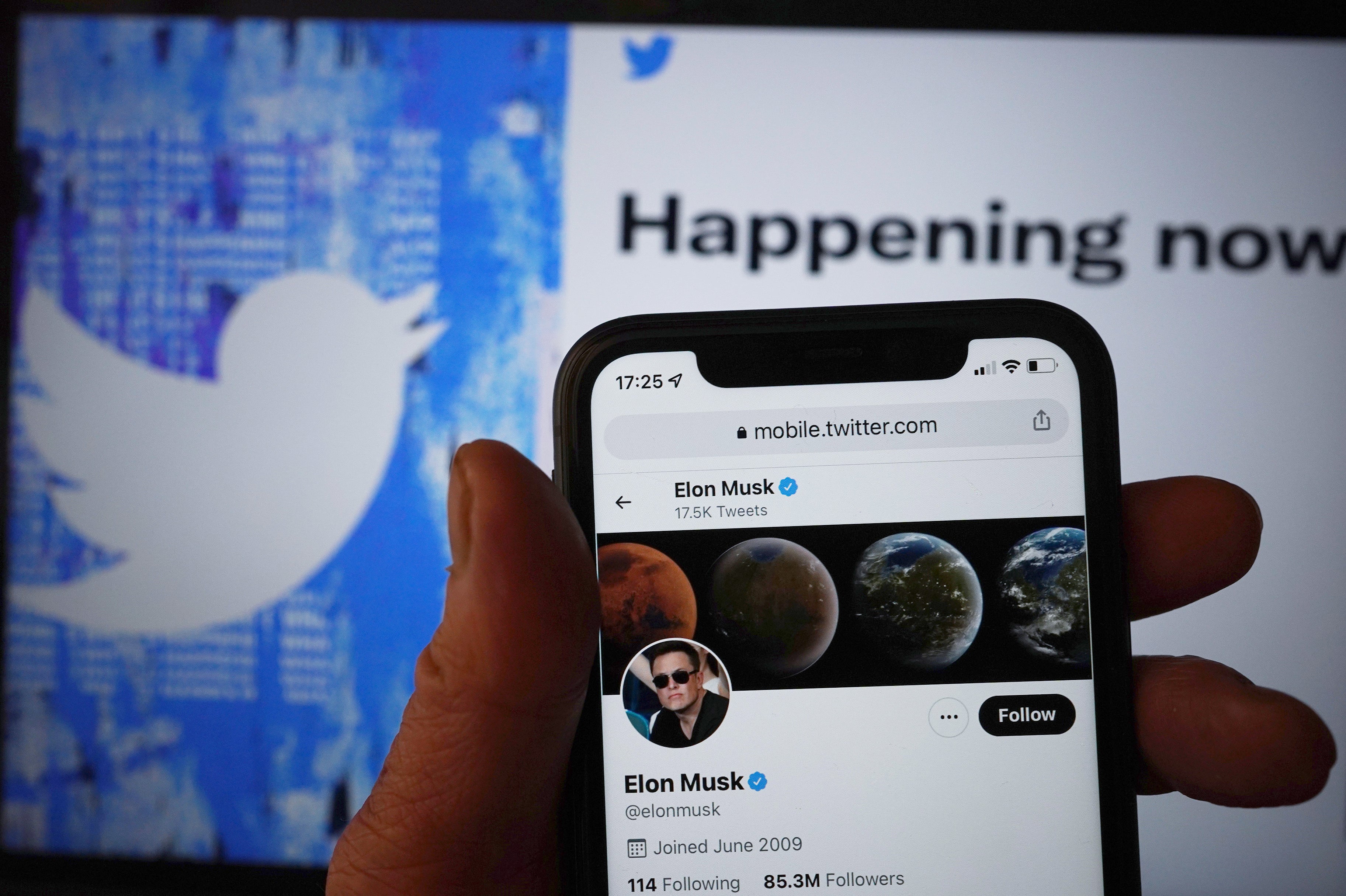Musk is gone and Twitter is up for grabs – so what are we going to do with it?
This whole saga highlights how our power over the online space is incredibly unequal


Your support helps us to tell the story
From reproductive rights to climate change to Big Tech, The Independent is on the ground when the story is developing. Whether it's investigating the financials of Elon Musk's pro-Trump PAC or producing our latest documentary, 'The A Word', which shines a light on the American women fighting for reproductive rights, we know how important it is to parse out the facts from the messaging.
At such a critical moment in US history, we need reporters on the ground. Your donation allows us to keep sending journalists to speak to both sides of the story.
The Independent is trusted by Americans across the entire political spectrum. And unlike many other quality news outlets, we choose not to lock Americans out of our reporting and analysis with paywalls. We believe quality journalism should be available to everyone, paid for by those who can afford it.
Your support makes all the difference.Spam bots are notorious in the online ecosystem – from influencing elections to facilitating harassment mobs and perpetrating fraud. Recently however, they have been awarded another dubious honour: taking centre stage in the drama as Elon Musk tried, nearly succeeded, then decided he didn’t want to buy Twitter after all.
The alleged core of this dispute is the extent of Twitter’s bot problem: Twitter claims that no more than 5 per cent of the accounts on its platform are bots; Musk claims it is much higher. Musk says bots undermine Twitter’s integrity and it must do more to get rid of them to trust the platform. And if it turns out that Twitter has fewer genuine users, it could be worth a lot less, through lost ad revenue.
This tussle is not about bots, but about power. The fiasco has highlighted that the system of how our de facto public spaces are controlled is broken. It is an example of three core issues at the heart of who has power over social media platforms today.
Firstly, who can see the inner workings of social media platforms, about what, and why? Researchers have been calling for years for greater transparency from social media companies. But after Musk initially put the deal on hold, Twitter offered him realtime access to all their tweets – the firehose API – to assess the prevalence of bots. This is currently only available to a few companies that pay a large amount of money. So not only does having money mean you can access more data – if you have enough, it gives you the power to set the agenda of what transparency matters.
If you’ve decided that spam bots are the most worrying thing about Twitter, you can make it the most worried thing about Twitter: even if the harms that users are suffering may have many and different causes that deserve attention. There’s a clear demonstration both that existing transparency isn’t sufficient, and that what will compel greater transparency is not the public interest, but financial risk.
Secondly, how do we protect free speech online, and who gets to decide what that looks like? After years of Twitter trying to make improvements on how it deals with issues such as hate and abuse online, and with still a long way to go, Musk positioned his takeover as the return of free speech on the platform. This left many concerned that this would mean a free-for-all for harm and abuse on the platform.
What has also characterised his approach, though, is that no-one is quite sure what the plans, or indeed the outcomes, would be – that it could in fact lead to alternative, community-based forms of moderation, or promote openness on the platform, which could make things ultimately safer.
The real issue is that “protecting free speech” should not be determined by the whims of one, very powerful, very wealthy individual.
These are issues which in the UK have been the source of intense debate and scrutiny for the last three years. As yet, there is still no consensus how a democratically empowered regulator ought to tackle these issues.
To keep up to speed with all the latest opinions and comment, sign up to our free weekly Voices Dispatches newsletter by clicking here
Thirdly, and most fundamentally: it highlights how power over the online space is distributed incredibly unequally. This is seriously concerning when those spaces are also key for public discourse. Musk already enjoys a great deal more power than the average user over Twitter – simply by virtue of his fame. As he was contesting Twitter’s claims about bot prevalence, a series of increasingly bizarre interventions on Twitter saw Musk appeal to other users to crowdsource the proportion of bots in various samples of accounts.
More recently, he has been tweeting memes of himself laughing at the situation, claiming that now Twitter has to disclose their information about bot accounts in court. This is not what governance should be: a parody of openness, but with no semblance of legitimate authority, nor accountability.
The future of Twitter is uncertain: but where it is not being determined by those who use Twitter, or by those who are affected by Twitter, nor even by those who work for Twitter, but by memes and lawsuits. The intricate details of a Musk takeover are not what we should be worried about – it’s what that takeover shows us about the power structures at play that mean that the democratic outlook for our online spaces is bleak.
Ellen Judson is head of the Centre for the Analysis of Social Media (CASM) at Demos
Join our commenting forum
Join thought-provoking conversations, follow other Independent readers and see their replies
Comments